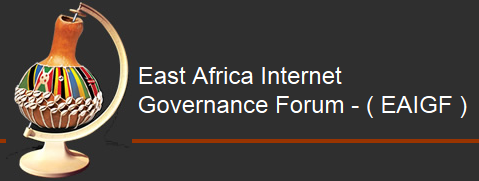Recapping July 2012’s East Africa Internet Governance Forum (EAIGF)
Recently, we’ve been keen on summarizing regional African Internet governance conferences. Afrique Central was held 29-31 May; West Africa 2-4 July; and East Africa 17-18 July. What’s more, all East African nations (Burundi, Kenya, Rwanda, Tanzania, Uganda) have held national IGFs in the past 5 weeks.
Focusing on EAIGF, an impressive selection of 32 presentations are available on the official site. From these we can immediately see an outline of major issues guiding Internet development in East Africa. Hot topics include gTLDs, cybercrime initiatives, e-government, open data, national IGFs, and youth. National IGFs also reported results to the greater community.
These themes have immediate bearing on where the Internet is headed in East Africa:
- E-government projects in Kenya include a messaging system, county connectivity project, data center, capacity building, and community learning centers.
- Kenya is in the process of implementing the Kenya Computer Incident Response Team Coordination Center (KE-CIRT/CC). Member ship will include Kenya ICT Board, law enforcement, e-government, ISPs, academia, and the financial sector.
- Kenya IGF: discussed international regulations, using technology to curb violence against women, open data & e-government, infrastructure, freedom of information, and new gTLDs.
- A case study on e-government in Rwanda sheds light on the third stage of the national ICT initiative. The presentation also contains a national backbone network map and WiMAX coverage map. Applications of eGov include the eSoko Project (market info), National eGov Portal, paper less government, and tele-medicine application.
- Rwanda social media statistics: 144,000 on Facebook, Paul Kagame is a social media champion, the Rwandan government has a variety of Facebook pages and leaders online.
- Somalia: Somalia Telecommunications and Internet Governance Alliance has existed for almost 2 years and is to become the future regulatory authority. There are 5,300 Internet subscribers, 89,000 users, and 59 Internet cafes.
- In Tanzania, the National ICT Backbone (NICTBB) is making great progress, with two phases now completed. Thousands of kilometers of cable have been laid and the backbone now reaches borders of five neighboring countries. NICTBB sells wholesale from one station to another, with most customers being telecoms companies in Tanzania (Simbanet, Zantel, TTCL, Air Tel, Tigo). At least 9 colleges connect to the backbone, as do many government offices, hospitals, and banks. Also, 2 IXPs are planned (for Mwanza and Dodoma) and the national ICT policy is to be reviewed.
- Uganda IGF: discussed promoting online safety, IPv6, net neutrality, and e-governance (open data). Online safety legislation is still weak, and awareness is low among parents. Providers aren’t seeing the need to invest in expensive IPv6 infrastructure. Many government websites are outdated and many benefits of e-government initiatives are yet to be realized. Also announced were plans for all secondary schools to have Internet access by the end of 2012.
- Burundi IGF: construction of the fibre network in Burundi started in April 2012. 150km has already been laid. “High speed Internet” could begin operation later in 2012 in Bujumbura, and in April 2013 in other major cities. Concerns include a lack of telecom operators, high end user data costs, and the relatively low level of education and purchasing power found in Burundi versus other East African nations. A National Policy of ICT Development (PNDTIC) to run from 2010 to 2025 will boost development.
- IGF is a great opportunity for youth to have a say in how the Internet is managed. Youth are assets of change. Youth are creative. There is a need to narrow the urban and rural divide to encourage participation.
- How to encourage youth participation in Internet development? Involve them in ICT policy formation, encourage ICT education in academia, foster youth mentorship, reward innovation, provide grants/scholarships, and create awareness about the Internet’s advantages.
- Looking at the new gTLDs from an African business perspective, it becomes apparent that application/maintenance costs are restrictive. dotAfrica presented on the history of and progress toward the .africa gTLD.













 Twitter
Twitter Facebook
Facebook Pinterest
Pinterest